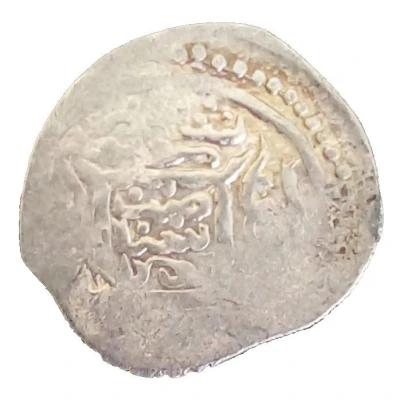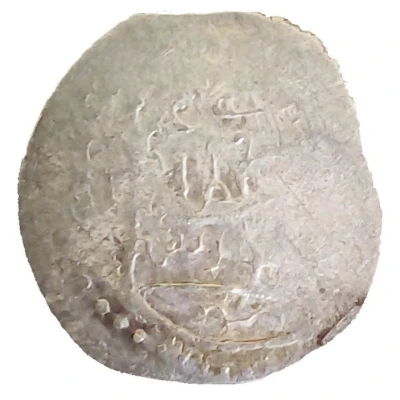


© igorstelli (CC BY-SA)
2 Dinars - Shah Mansur ND
| Silver | 1.08 g | 19 mm |
| Issuer | Muzaffarid dynasty |
|---|---|
| Shah | Shah Mansur (1388-1393) |
| Type | Standard circulation coin |
| Years | 1388-1393 |
| Value | 2 Dinars |
| Currency | Dinar (1314-1393) |
| Composition | Silver |
| Weight | 1.08 g |
| Diameter | 19 mm |
| Thickness | 0.2 mm |
| Shape | Round (irregular) |
| Technique | Hammered |
| Demonetized | Yes |
| Updated | 2024-10-05 |
| Numista | N#377467 |
|---|---|
| Rarity index | 95% |
Reverse
Circle with outer dots. Inner big square, with legends inside and outside.
Script: Arabic
Edge
Plain
Comment
This coins bear normally no date, occasionally 793 or 794 AHMany other mints are associated with this type, with several subtypes.
According to S.Album:
Muzaffarid coins are usually rather carelessly struck, typically off center or with considerable weakness, despite the magnificent art of
the dies. Well-centered and fully struck specimens are exceptional, unknown for most types.
Most Muzaffarid coins are theoretically dated, but the date is off flan on the majority of extant specimens. Since weight standards were carefully maintained, undated or date-missing specimens can often be approximately dated by weight.
Time of Shah Mansur, including issues of Timur and of the second reign of his rival, Zayn al-‘Abidin
791-793 1.26g 2 dinars
Later time of Shah Mansur, standard briefly retained by Timur after his definitive conquest in 795
793-796 2.16g 4 dinars
793-796 1.08g 2 dinars
Here are several examples of this type, credited to Zeno.ru
Interesting fact
One interesting fact about the 2 Dinars - Shah Mansur ND (1388-1393) coin from the Muzaffarid dynasty is that it features a unique blend of Islamic and Mongolian influences in its design. The coin's obverse side features the name of the ruler, Shah Mansur, in Arabic script, while the reverse side features a stylized depiction of a Mongolian horseman, reflecting the Mongolian influence on the Muzaffarid dynasty at the time. This blend of cultures is a fascinating aspect of the coin's history and design.